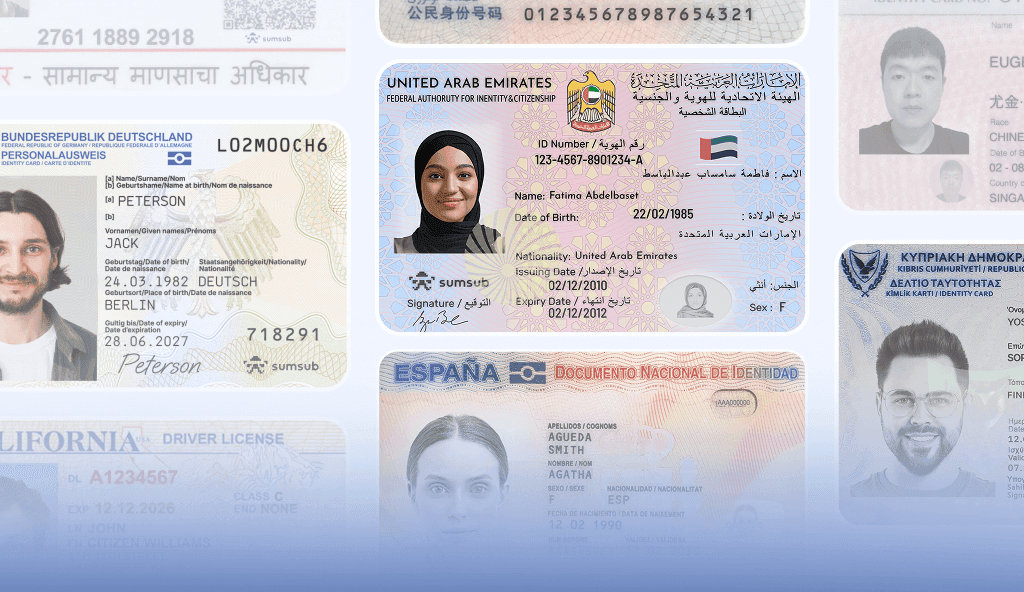- Jun 06, 2019
- 4 min read
New FinCEN Regulation Reinforces Compliance Laws. What Is Going to Change for Businesses?
On May 9, 2019, Financial Crimes Enforcement Network (FinCEN) has published a new guidance sheet on businesses that operate using convertible virtual currencies (CVC). The regulation draws attention to already established rules — it affirms current FinCEN regulations, guidance and administrative rules in relation to money transmission involving virtual currency. It applies the same interpretive criteria to other businesses operating with CVC — a kind of virtual currency that is either equivalent to some value as currency, or substitutes for currency.
What is FinCEN regulation and who does it concern
The official document outlines the conditions on when and how different companies, individuals or platforms are regarded as money transmitters under the Bank Secrecy Act (BSA) and relevant laws. It also states that being a money transmitter under FinCEN rules means a company or person must strictly follow federal AML and Know-Your-Customer (KYC) regulations.
More specifically, under the BSA and FinCEN Regulations, a money services business must develop and support an AML program that fits their business model and compliance regulations. Companies will have to introduce a risk-based based approach based on their customer base, the geographies served, and the services offered. Businesses are obliged to register with FinCEN within 180 days of starting to engage in money transmission.
FinCEN states that the AML program expected from businesses must assure ongoing compliance by verifying customer identification, completing reports, maintaining records, respond to legislation demands, providing compliance training to personnel, etc. To be confident of businesses’ compliance, it will be subsequently reviewed for adequacy.
What changed
Once again, the updated regulation does not create any new regulatory expectations, instead, it puts the already existing rules in one place. FinCEN 2019 affirms which of businesses and individuals working with CVCs are regarded as money transmitters, requiring them to register with FinCEN as money services businesses (MSB), develop anti-money laundering programs and report on currency transactions, as well as any suspicious activities, to the regulator.
Who is a money transmitter
As being a money transmitter requires entities and individuals to register with FinCEN as money services businesses and develop an AML compliant policy, it is important to recall the definition. Money transmitter is somebody, who engages in the following affairs.
- Using any form of ordinary currency (paper money, coins, Federal Reserve Bank notes, United States notes, funds credited to an account) to engage in money transmission;
- Issuing digital or physical tokens evidencing ownership of securities, commodities or futures contracts that substitute for currency in money transmission transactions;
- Issuing or employing securities, commodities or futures contracts that substitute for currency in money transmission transactions;
Who is affected by FinCEN’s money transmission regulations
1. Natural Persons (P2P Exchangers)
A natural person acting as a P2P exchanger and engaging in CVC money transmission services has to comply with BSA regulations as a money transmitter. Note: a natural person engaging in money transmission not for profit or gain and on an infrequent basis would be exempt from the obligations of FinCEN regulation.
2. Decentralized Applications (DApps)
DApps that accept and transmit value, regardless of whether they operate for profit. When decentralized applications perform money transmission, the definition of money transmitter will apply to the service, its owners or both.
3. CVC Wallets
There are different wallet types that vary according to the technology employed, where and how the value is stored, and who controls access to the value.
Hosted wallet has the money transmitter as the host, the account as the wallet, and the account holder as the wallet owner. For example: online wallets like Coinbase, which store users' private keys. Non hosted wallets cannot be considered money transmitters and are not subjected to regulation as its users control their funds themselves.
4. Payment Processing Services
CVC payment processors act as financial intermediaries between traditional merchants and customers that use CVC in exchange for goods and services sold.
5. Internet Casinos
Any individual involved in gambling, receives deposits and bets, issues payouts and transmits CVC value may be regulated as a money transmitter.
6. Electronic Terminals or СVС Kiosks
An owner-operator of a CVC kiosk that uses electronic terminal to accept currency from a customer and transmits the equivalent value in CVC is a money transmitter. The same principle applies in case of a reverse process.
7. Anonymity-Enhanced СVС Transactions
CVC transactions created to hide information that is could be otherwise available through the native distributed public ledger (also known as privacy coins).
Who can be exempt from being a money transmitter
According to FinCEN regulations, an individual is exempt from money transmitter status if they provide only delivery, communication, or network access services that a money transmitter employs to support money transmission services.
- Trading Platforms and Decentralized Exchanges (DEX) are withdrawn from the AML legislation only if their only function is to offer a forum platform to the buyer and seller, but if DEX settles transactions, they will be regulated by FinCEN.
- Mining Pools and Cloud Miners that transfers CVC to the pool members or contract purchasers to distribute the amount earned, this distribution does not count as BSA money transmission, as these transfers are essential to the provision of services (the authentication of blocks of transactions through the combined efforts of a group of providers, or through the equipment of the cloud miner).
- Fundraising or Hedging Activity include individuals that are involved in the fundraising activity, who can be exempt from a money transmitter requirements if the acceptance/transmission of value is only innate to the sale of goods or services different from money transmission.
As the new regulation comes into force, businesses considered money-transmitters will have to review their AML policy, figuring out compliance and implementing relevant procedures, that will shift their focus from business to compliance. Abandoning growth strategies in support of compliance in not the solution a success driven company needs. Sumsub can help your financial operations meet the standards of local and international regulators.
Relevant articles
- Article
- 1 week ago
- 11 min read
Learn what KYC is and the steps users should take to onboard smoothly.

- Article
- Jan 15, 2026
- 8 min read
AI-generated fake IDs are bypassing traditional KYC: learn why businesses need to rethink their identity verification in 2026.

What is Sumsub anyway?
Not everyone loves compliance—but we do. Sumsub helps businesses verify users, prevent fraud, and meet regulatory requirements anywhere in the world, without compromises. From neobanks to mobility apps, we make sure honest users get in, and bad actors stay out.


